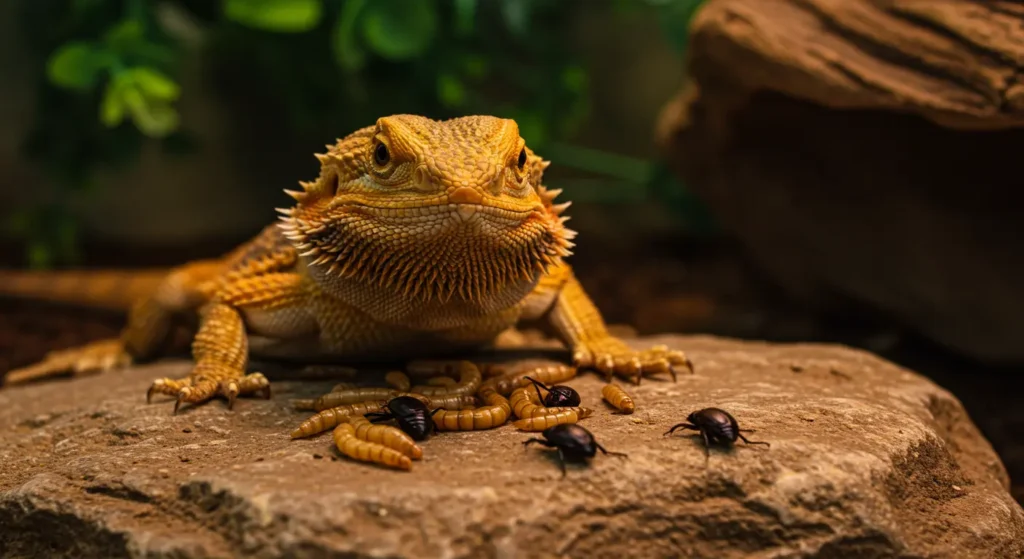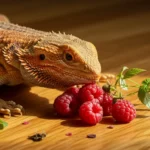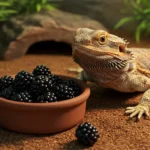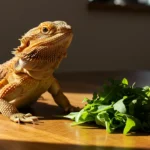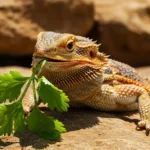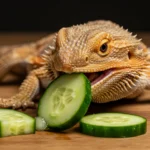If you’re a bearded dragon owner or enthusiast, you might be wondering, “Can bearded dragons eat beetles?” This question is common among reptile keepers who want to offer a varied and nutritious diet to their pets. Beetles can seem like a tempting treat due to their crunchy texture and protein content, but it’s important to understand whether they are truly safe and beneficial for your bearded dragon.
In this article, we will explore the answer to can bearded dragons eat beetles, discussing which beetle species are suitable, how to feed them properly, and what risks to watch out for. By the end, you’ll have expert advice to help you make the best dietary choices for your scaly companion’s health and happiness.
Understanding the Bearded Dragon’s Diet: Can Bearded Dragons Eat Beetles?
Bearded dragons require a balanced diet to stay healthy and active. Knowing what they can safely eat is essential, especially when considering insects like beetles. Let’s explore how beetles fit into their nutritional needs and overall diet.
Overview of Bearded Dragon Nutritional Needs
Bearded dragons are omnivores, which means they need both animal protein and plant matter. Juveniles require more protein for growth, while adults need a higher percentage of vegetables. Essential nutrients include calcium, vitamins, and proteins to support their bones, skin, and energy levels. A varied diet ensures they receive a full spectrum of nutrients for optimal health.
Role of Insects in a Bearded Dragon’s Diet
Insects are a vital source of protein for bearded dragons. They provide essential amino acids and help maintain muscle mass. Live insects also encourage natural hunting behaviors, which are important for mental stimulation. Common feeder insects include crickets, dubia roaches, and mealworms, which are generally safe and nutritious when properly prepared.
How Beetles Compare to Other Common Insects (Crickets, Dubia Roaches)
Beetles differ from other feeder insects in their exoskeleton thickness and nutrient content. While crickets and dubia roaches are staples in most diets, beetles offer a crunchy texture but may have a harder exoskeleton that is harder to digest. Their protein content varies depending on the species. Understanding these differences helps you decide when and how to include beetles safely.
When and Why Beetles Can Be a Good Treat
Beetles can be offered occasionally as a treat to add variety to your bearded dragon’s diet. They are useful for stimulating natural hunting instincts and preventing boredom. However, they should not replace staple insects due to potential digestive challenges. Feeding beetles occasionally supports both nutrition and enrichment.
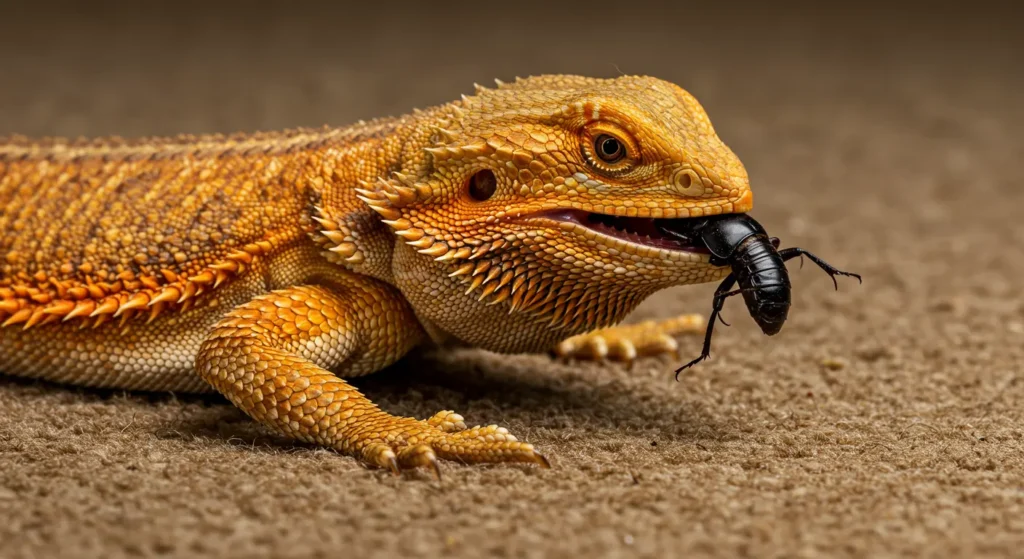
Which Beetle Species Are Safe and Nutritious for Bearded Dragons?
Not all beetles are suitable for feeding to bearded dragons. It’s crucial to identify which species are safe and beneficial to avoid health risks. This section covers common edible beetles and how to choose them wisely.
Common Beetle Types Suitable for Feeding
Some beetle species, such as darkling beetles (larvae known as superworms) and certain flower beetles, are commonly fed to reptiles. These beetles are generally non-toxic and have moderate nutritional value. Their larvae are often softer and easier to digest, making them a safer choice for bearded dragons.
Avoiding Toxic or Harmful Beetle Species
Certain beetles secrete chemicals or have hard exoskeletons that can harm your pet. Avoid brightly colored or wild-caught beetles that might be toxic or carry parasites. It’s best to purchase beetles from reputable reptile food suppliers rather than collecting insects from the wild.
Nutritional Value of Different Beetles
Beetle nutritional content varies by species and life stage. Larvae typically contain higher fat and protein than adult beetles. Darkling beetle larvae, for example, are rich in protein but can be fatty, so moderation is key. Understanding these differences allows you to balance your dragon’s diet effectively.
Where to Source Safe Beetles for Your Pet
The safest source of beetles is a trusted reptile feeder supplier or pet store. These vendors provide insects bred specifically for feeding reptiles, minimizing risks of pesticides, parasites, or contamination. Always inspect the beetles for health and cleanliness before offering them to your pet.
Best Practices for Feeding Beetles to Your Bearded Dragon
Proper feeding methods ensure that beetles are a safe and beneficial addition to your bearded dragon’s diet. This section outlines frequency, preparation, portion sizes, and warning signs to watch.
How Often Should You Offer Beetles?
Beetles should be offered as occasional treats, not daily staples. Feeding them once or twice a week is generally safe and helps add dietary variety. Overfeeding fatty or hard-to-digest insects can cause digestive issues, so moderation is important.
Preparing Beetles for Safe Consumption (Gut-loading and Dusting)
Before feeding, beetles should be gut-loaded with nutritious foods like leafy greens or commercial insect diets. This boosts their nutritional value for your pet. Dusting beetles with calcium and vitamin supplements helps prevent deficiencies and supports bone health.
Portion Sizes and Feeding Frequency Guidelines
Offer beetles in small portions appropriate for your bearded dragon’s size. Juveniles require more frequent feedings with smaller amounts, while adults need less protein overall. Keep insect treats under 10% of the total diet to maintain balance. For more information on feeding safe insect treats, check out our guide on Can Bearded Dragons Eat Wax Worms? Expert Advice on Nutrition..
Signs of Overfeeding or Digestive Issues to Watch For
Watch for signs like lethargy, constipation, or swelling, which can indicate digestive problems from overfeeding beetles or other insects. If these symptoms occur, reduce insect treats and consult a reptile veterinarian for advice.
Potential Risks and How to Minimize Them When Feeding Beetles
Feeding beetles to bearded dragons can be beneficial, but there are risks to be aware of. Understanding these potential issues and taking steps to minimize them helps keep your pet safe and healthy.
Understanding the Exoskeleton and Digestibility Challenges
Beetles have a hard exoskeleton made of chitin, which can be tough for bearded dragons to digest. Overconsumption may lead to impaction or digestive discomfort. Offering beetle larvae or softer-bodied insects can reduce these risks. Always observe how your pet handles new foods.
Possible Allergies or Reactions in Bearded Dragons
Although rare, some bearded dragons may develop allergic reactions or sensitivities to certain insects, including beetles. Symptoms may include swelling, lethargy, or changes in appetite. If you notice any unusual behavior after feeding beetles, discontinue them and consult a veterinarian.
Preventing Parasites and Contaminants
Wild-caught beetles can carry parasites, pesticides, or harmful bacteria. Feeding only captive-bred beetles from reputable sources significantly lowers these risks. Proper gut-loading and hygiene practices also help prevent contamination and keep your pet healthy.
When to Consult a Reptile Veterinarian
If your bearded dragon shows signs of illness, digestive trouble, or adverse reactions after eating beetles, it’s important to seek professional advice. A reptile veterinarian can provide diagnosis, treatment, and dietary recommendations tailored to your pet’s needs.
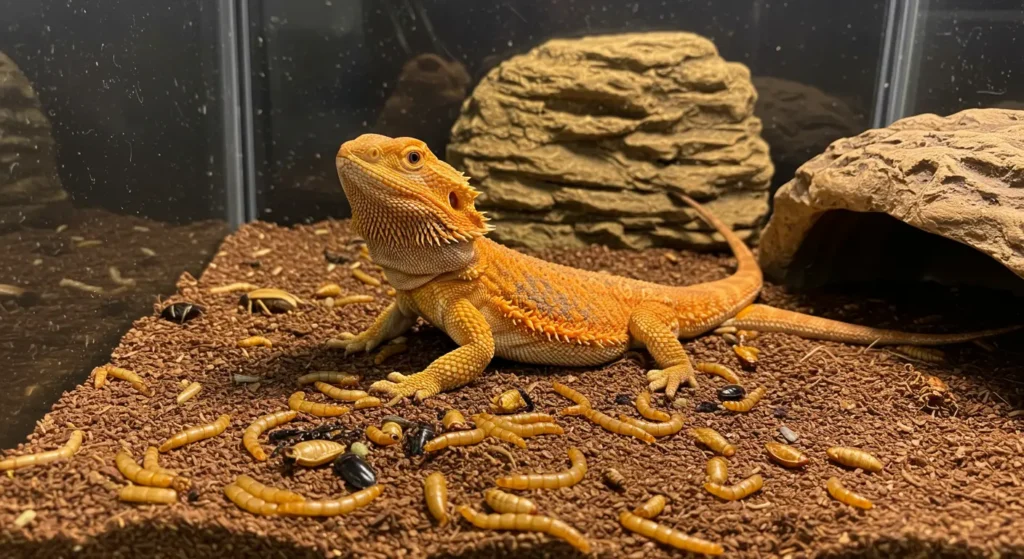
Creating a Balanced Diet for a Happy, Healthy Bearded Dragon
A well-rounded diet is key to your bearded dragon’s overall well-being. Including beetles appropriately along with other food groups ensures they get the nutrition needed for a long, healthy life.
Combining Beetles with Other Protein Sources
Beetles should complement other protein-rich foods like crickets, dubia roaches, and mealworms. Rotating different insects provides a variety of nutrients and reduces the risk of dietary imbalances. Protein variety also keeps your dragon interested in its meals.
For a comprehensive list of safe foods and dietary guidelines for your bearded dragon, refer to this complete food list.
Importance of Leafy Greens and Vegetables
Leafy greens and vegetables are essential for supplying fiber, vitamins, and minerals. Bearded dragons benefit from collard greens, mustard greens, dandelion greens, and squash. A diet too heavy in insects without enough greens can lead to health issues.
Supplementing Calcium and Vitamins for Optimal Health
Calcium and vitamin D3 supplements prevent metabolic bone disease and support strong bones and healthy metabolism. Dusting insects, including beetles, with supplements before feeding ensures your bearded dragon receives these vital nutrients regularly.
Monitoring Your Bearded Dragon’s Health and Behavior
Regularly observing your pet’s activity, appetite, and stool quality helps detect any dietary or health problems early. Changes in behavior may signal nutritional deficiencies or digestive issues. Adjust your feeding routine as needed and maintain routine veterinary check-ups.
Conclusion
Understanding can bearded dragons eat beetles is essential for providing a safe, varied, and nutritious diet for your pet. Beetles can be a beneficial occasional treat, offering protein and enrichment when chosen and prepared properly. However, it’s important to select the right beetle species, feed them in moderation, and be mindful of potential risks like digestive challenges and contaminants.
By combining beetles with other high-quality protein sources, fresh leafy greens, and proper supplements, you can create a balanced diet that supports your bearded dragon’s health and happiness. Always monitor your pet’s reaction to new foods and consult a reptile veterinarian if you have any concerns.
With expert guidance and thoughtful care, beetles can become a safe and enjoyable part of your bearded dragon’s diet, contributing to a long, vibrant life.

